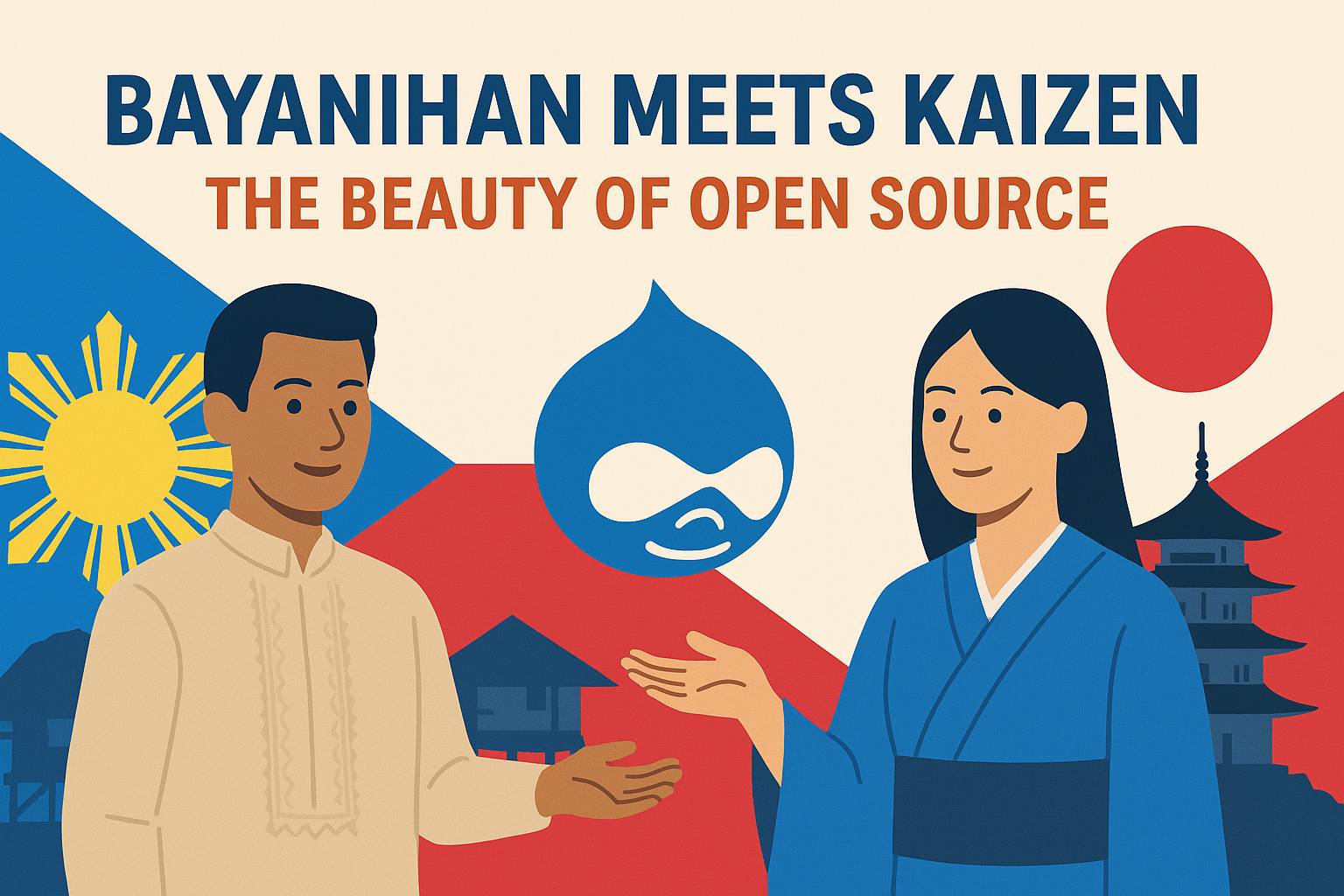There’s something magnetic about open source. Maybe it’s the freedom, maybe it’s the collaboration, or maybe it’s the quiet thrill of building something that belongs to everyone. Whatever it is, open source isn’t just a way to make software—it’s a way to make progress together. And nowhere is that clearer than in the Drupal community, where developers, designers, and thinkers across the world—including right here in Asia—turn shared code into shared possibility.
At its heart, open source means the code is open for everyone to use, study, modify, and share. No locked boxes, no secret formulas—just tools anyone can learn from and improve. You don’t need a license fee or corporate permission to take part. You only need curiosity and a willingness to contribute. Think of it as the “bayanihan” spirit in digital form—the Filipino idea of a community lifting together. Or, in Japan, it’s the same spirit that drives kaizen: small, steady improvements that, together, make something extraordinary.
Drupal, like other open source projects such as Linux or WordPress, thrives on that energy. It’s free to download, free to explore, and constantly evolving because people everywhere pitch in. A developer in Tokyo might contribute a security patch. A university team in Cebu could build a new education module. A digital agency in Manila might refine a theme to make government websites more accessible. And all of these efforts feed back into the same global system. No one owns Drupal completely—and that’s exactly why it works so well.
But open source isn’t just about saving costs, though that’s part of its appeal. It’s about generosity. It’s about believing that knowledge grows stronger when shared. Someone in Osaka writes a module to improve site performance; six months later, a non-profit in Davao uses that module to power a community outreach website. Improvements bounce across borders. Innovation doesn’t need to wait for permission—it just needs participation.
That’s why the open source movement feels so alive. It shows what can happen when people unite around the idea that progress belongs to everyone. In a world where so much software is locked behind paywalls or proprietary systems, open source feels like fresh air. It reminds us that technology can still be driven by curiosity, not just by profit.
And the best part? The values behind open source extend beyond code. Transparency, collaboration, trust—these are lessons any organization can learn from. In the Philippines, where collaboration often means working across islands and time zones, open source tools make connection possible. In Japan, where craftsmanship and precision are cultural cornerstones, open source projects mirror that dedication to improvement and attention to detail. Both cultures understand that excellence grows when knowledge is shared, not hidden.
Of course, open source isn’t effortless. It takes patience, coordination, and respect to make a global project thrive. But the challenge is part of the beauty. Every line of code, every forum discussion, every late-night debugging session is a reminder that innovation isn’t a solo act—it’s a collective story.
That’s why we love open source. Because it represents something bigger than technology. It’s about communities, creativity, and the belief that progress should be open to all. When a developer in Manila, Kyoto, or anywhere else contributes to Drupal, they’re not just building a website—they’re helping build a web that’s freer, smarter, and more human.
Open source isn’t just free software. It’s free thinking. It’s proof that when we open our work to others, we open the door to endless possibility.

